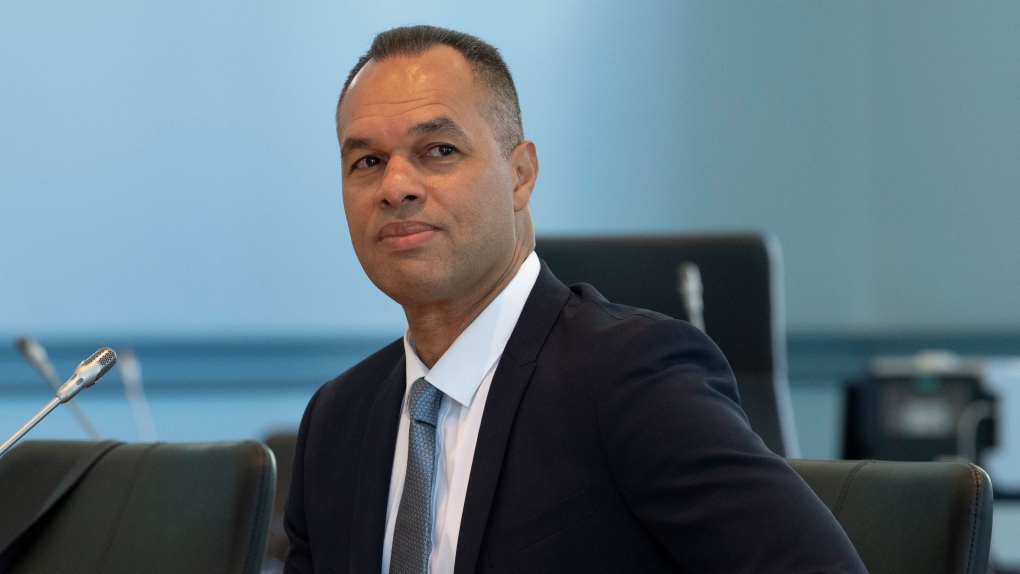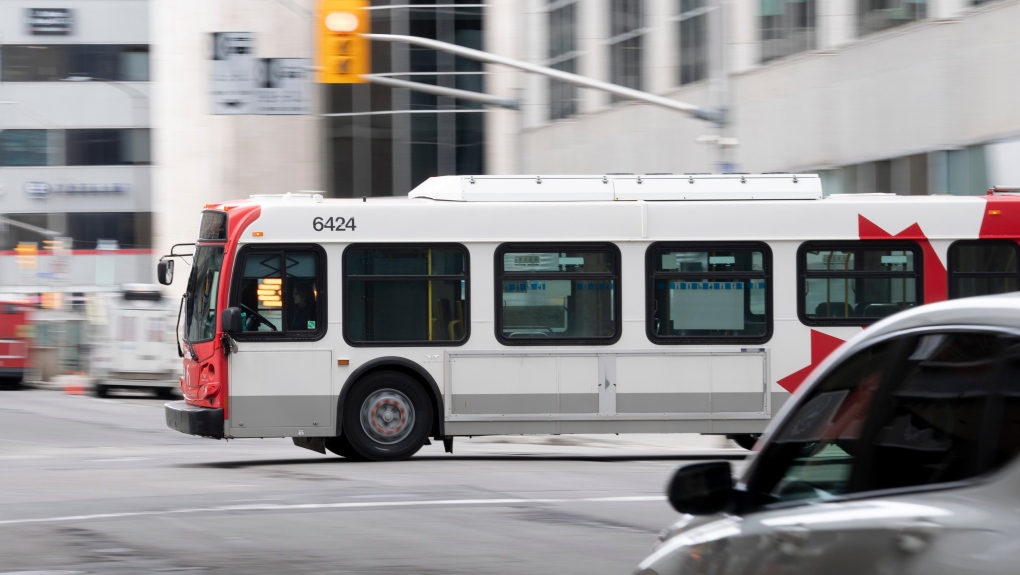
City of Ottawa tables budget with three per cent tax hike
The city of Ottawa’s draft 2022 budget includes a three per cent increase to property taxes next year, which would mean an increase of $119 on the average urban homeowner's property tax bill.
The $4.14-billion draft budget brought before city council Wednesday would also see rural homeowners pay $91 more in 2022, on average, and commercial property bills are going up $240.
In addition to property taxes, other fees are also going up.
The water, wastewater, and stormwater fees are increasing for an average impact of an extra 4.2 per cent on an urban connected water bill ($35.90 more than in 2021) and 8.1 per cent on non-connected rural homes (up $6.25 from 2021.)
The COVID-19 pandemic is expected to put $161.6 million in budgetary pressure on the city. Mayor Jim Watson says he and other Big City Mayors will be making their case to the federal and provincial governments to sustain pandemic funding for municipalities into 2022. If no funding from other levels of government is made available, the city will need to dip into its reserves to balance the budget.
Board of Health chair Coun. Keith Egli says the provincial government confirmed it would cover $48 million of OPH's COVID-19 spending from 2021.
The city plans to hire 14 new paramedics and buy 12 new ambulances in 2022. The city is also spending $2.1 million to install air conditioning units in its four city-run long-term care homes.
An equivalent of 120 full-time staff will be hired overall across the city in 2022.
Spending on road renewal increases to $133 million next year. The city is also installing 15 new photo radar cameras in speed zones and increasing active transportation spending to $26.7 million. Spending on cycling infrastructure is set to increase to $14.1 million.
The budget includes $15 million for affordable housing.
Paito fees will be waived again in 2022. Watson also says 10,000 small businesses in the city will see a 7.5 per cent reduction in taxes, which will be covered by larger commercial and industrial businesses. The city is also aiming to make 2022 the "Year of Cultural Tourism" in Ottawa to boost flagging tourism revenues that were severely reduced by the pandemic. Rental rates at city facilities will be cut in half until the end of 2022.
Police budget calls for 2.9 per cent increase
The Ottawa police service is asking for a $14 million increase in its budget for 2022, a 2.9 per cent increase.
However, the service is planning to cancel new hires and find more than $5 million in savings in an effort to rein in costs.
The police budget has been a contentious issue in the city this year amid calls to freeze or reduce spending. The police services board had directed staff to draft the operating budget that "assumes a zero per cent increase as its base."
The draft budget doesn’t meet that goal. The net operating budget for the service is $346.5 million in 2022, an increase of $14 million over 2021.
The net increase to police taxation revenues would be 2.86 per cent, which works out to an average $19 increase on the average taxpayer’s bill.
“It is extremely challenging to balance the desire to flatten the cost curve of the Budget while trying to meet the increasingly diverse and growing demands for service and change both inside and outside of the OPS,” Chief Peter Sloly said in unveiling the draft budget Wednesday. “The OPS joins the Board in its commitment to find that balance while building a truly different and better police service.”
The draft budget includes forgoing all 30 planned new officer positions in 2022. It also includes a plan to save $5.1 million through “efficiencies” such as a fleet and facilities rationalization exercise and the privatization of the collision reporting centres.
Watson told reporters the police budget would be highly scrutinized in the weeks ahead, but he is satisfied with it, as presented.
"I'm pleased that the draft budget does not anticipate cutting police officers or laying off police officers," he said. "That was a number one priority of mine and I believe a majority of members of council did not want to see the budget frozen, which would have meant about 140 police officers being laid off."
Watson says he hopes there aren't attempts to slash the budget during consultations.

Transit budget includes fare hike
OC Transpo fares are budgeted to increase 2.5 per cent in January. This is despite the recent issues on the Confederation Line LRT. Ridership across the transit system remains below pre-pandemic levels.
EquiPass, EquiFare and Community Pass prices will remain frozen at 2018 levels. An adult monthly pass is set to increase by $3 to $125.50. Fares will go up 10 cents to $3.70 when paying by Presto card and $3.75 when paying by cash. The senior's pass is going up $1 to $47.75. The cost of a UPass will go up $5.45 to $223.48 per semester starting Sept. 1, 2022. The Para Transpo fare with access pass is going up 5 cents to $2.50 and the rural fare is going up a quarter to $10.
Ongoing service hour reductions will save the city $11 million in 2022.
Speaking to reporters after the council meeting, Watson said he believes the fare increase is justified, given rising inflation.
"If we're to improve the system and increase the capacity of bus service and train service, we need to keep up with inflation. As you know, inflation is going up, the 2.5 per cent is under the rate of inflation, and we recognize that we first and foremost have to improve the quality of the service and regain the public's confidence," he said.
Watson also noted the plan to provide a month of no-charge transit service in December would be a "small step" toward regaining some confidence in the system.
Transit commission chair Coun. Allan Hubley said increased fares will go toward improving the transit system.
"What we're using it for is to invest in system, to make it more reliable and more user friendly," he said, noting that as the pandemic hit, OC Transpo increased client service staff and upped its staff presence to respond to reuqests on social media.
"That's what increased fares do. If we want to move away from increasing fares, we have to find other sources of funding to achieve our long-term plan," he said.
Staff have laid out three plans—A, B, and C—based around how deep in the red the transit system ends up. Plan A assumes government funding will come through, and staff say they're confident it will. Plan B would be enacted if there is no government funding to fill gaps in the transit system, and would call for hiring and spending freezes and other measures that wouldn't have a significant impact on riders. Plan C is the final step that would involve potential service cuts only if Plans A and B fail to balance the books.
Hubley said the major unknown in OC Transpo's plan for 2022 is what the federal government plans to do with its workforce that moved out of downtown and into remote work when the pandemic began.
"The reality is, we need to hear from the feds. That's the biggest piece of our future planning. We need that number, whether it's 50 per cent or 20 per cent, and we can plan around that and adjust our long-term planning."
The 2022 draft transit budget also includes $55 million to replace 74 of OC Transpo's 40-foot buses—the new buses are expected to be zero-emission battery electric vehicles—$17.4 million to support the transition to expanded Stage 2 operations, $9.6 million in improvements to bus stops and stations—plus an additional $500,000 on accessibility improvements—and $625,000 for a proposed marketing campaign to encourage ridership following the COVID-19 pandemic, and $8 million to ensure wi-fi and cell service along Stage 2, among other items.
 An OC Transpo bus rolls through downtown Ottawa, Thursday April 16, 2020. (Adrian Wyld/THE CANADIAN PRESS)
An OC Transpo bus rolls through downtown Ottawa, Thursday April 16, 2020. (Adrian Wyld/THE CANADIAN PRESS)
Budget by the numbers
- Community and Social Services: $774M
- Transit: $695M
- Water/Sewer/Solid Waste: $543M
- Ottawa Police Services: $385M
- Capital Formation Costs: $370M
- Emergency and Protective Services: $339M
- General government: $259M
- Parks, Recreation, Cultural & Building Services: $246M
- Transportation: $242M
- Public Health: $123M
- Planning, Building Code & Economic Development: $107M
- Ottawa Public Library: $58M
- TOTAL: $4.14B
The full budget will be submitted for council approval on Dec. 8.
CTVNews.ca Top Stories

Couple randomly attacked, 1 stabbed, by group of teens in Toronto, police say
A man has been transported to hospital after police say he was stabbed in a random attack carried out by a group of teens in Toronto on Friday night.
Ron Ellis, who played over 1,000 games with Maple Leafs, dead at 79
Ron Ellis, who played over 1,000 games with the Toronto Maple Leafs and was a member of Canada's team at the 1972 Summit Series, has died at age 79.
Fort Nelson, B.C., wildfire doubles in size as 3,000-plus ordered to evacuate
The wildfire that sparked Friday and caused evacuation orders for more than 3,000 people in Fort Nelson, B.C., and the nearby Fort Nelson First Nation, has grown to nearly 1,700 hectares in size, according to a Saturday morning update from the BC Wildfire Service.
Eurovision Song Contest final kicks off after protests, backstage chaos and a contestant's expulsion
The final of the 68th Eurovision Song Contest kicked off Saturday in the Swedish city of Malmo after days of protests and offstage drama that have tipped the feelgood musical celebration into a chaotic pressure cooker overshadowed by the war in Gaza.
IN PICTURES Northern lights dance across the night sky in southern Ont.
From London, to Grand Bend, Collingwood and Guelph, here are some highlights of Friday night and Saturday morning's northern lights display.
Haitians demand the resignation and arrest of the country's police chief after a new gang attack
A growing number of civilians and police officers are demanding the dismissal and arrest of Haiti's police chief as heavily armed gangs launched a new attack in the capital of Port-au-Prince, seizing control of yet another police station early Saturday.
opinion How to use your credit card as a powerful wealth-building tool
Irresponsibly using a credit card can land you in financial trouble, but personal finance columnist Christopher Liew says when used properly, it can be a powerful wealth-building tool that can help grow your credit profile and create new opportunities.
Which Canadian cities have the highest and lowest grocery prices?
Where you live plays a big factor in what you pay at the grocery store. And while it's no secret the same item may have a different price depending on the store, city or province, we wanted to see just how big the differences are, and why.
'I am angry': Alberta farmers will continue fight over world class motorsport resort
The rolling hills leading to the hamlet of Rosebud are dotted with sprawling farms and cattle pastures -- and a sign sporting a simple message: No Race Track.
































